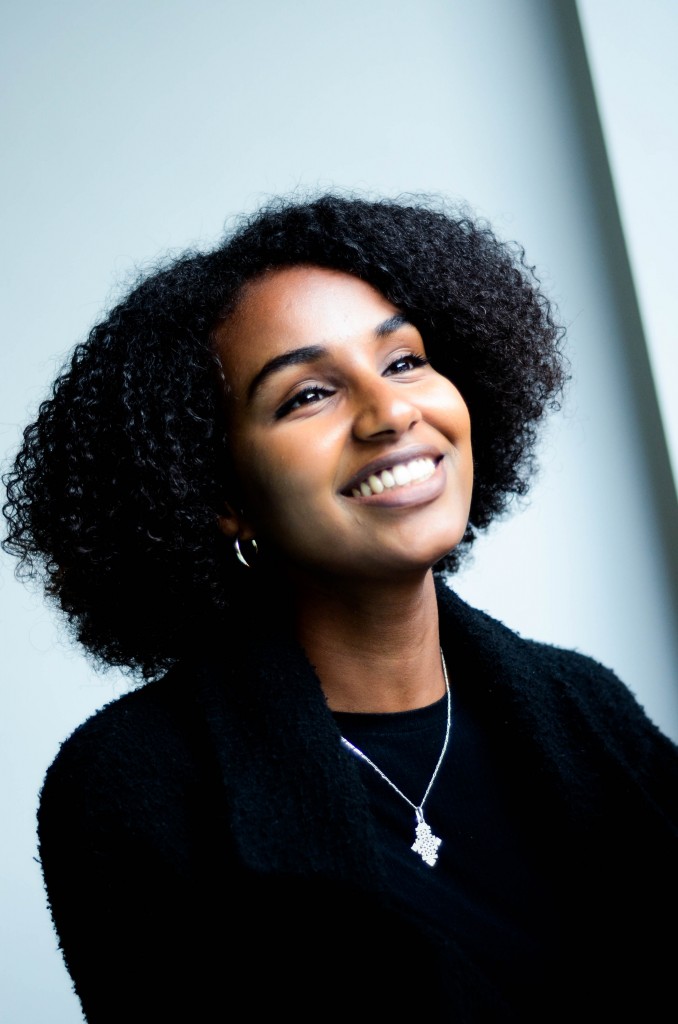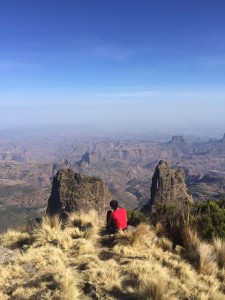Diaspora Blues: on being black in Belgium and white in Ethiopia
By Melat Nigussie
“E-thio-pia!” my five-year-old self shouts out when my classmates ask me where I come from. The word gently rolls off of my tongue, a small gasp of air between the first and second syllable halts my speech, but my pride shines through in the gleeful exclamation of that wonderful noun. I had always been proud of my Ethiopian roots, even as a small child. The seeds of this robust pride had been planted in me by my parents, who with every gesture and conversation seemed to say: never forget where you come from.
This message was woven into the bedtime stories my father used to tell me: grandiose tales about kings and queens, hyenas and lions. I felt it through the melancholic sounds of the Tizita songs he used to play in the car, accompanied by his heartfelt humming that expressed a profound longing for a distant past. It radiated through the Amharic we spoke at home and the way we added ‘ye’ to every name: Melatye. My Melat. The simplest way to express one’s love. We celebrated our roots through the meals we shared together as we sat around big plates of injera, giving each other gurshas. Growing up, Ethiopia was not some faraway place in Africa, but was located right here in Belgium, within the confines of our small house.
Later, I would realize why my parents had held onto these cultural symbols so vehemently, and why they were determined to pass them along to their children. After leaving their homeland, after leaving behind everything and everyone they knew, they felt like they were hanging in the void, rootless. In the face of cultural erasure, accelerated by the unbearable pressure to integrate and assimilate, clinging on to their identity was their only defence.
And so, when I decided to visit Ethiopia for the first time in almost ten years, I understood that the image of Ethiopia that I had created had been fed by the dreams, hopes and wishes of my parents. But to sincerely love your country is to let go of the polished, romanticized version, and to see it as it truly is.
The good, the bad and the ugly.
I travelled eight cities in two different regions and I saw beauty and splendour in every corner. I saw it in the sublime mountains that stretched out over the landscapes as far as the eye could see, and that made you feel grandiose and so small at the same time. I saw it in the ancient rock-hewn churches and mosques, built hundreds of years ago, standing side by side, testimony of the shared past and love between Christians and Muslims. I saw it in the smile of a young woman fetching water, in the gleeful banter between neighbours sitting outside for their daily coffee catch up and I heard it in the cheerful laughter of children playing hide and seek in the streets. I saw it in the humble little bow people make when they greet you, and in the way friends and friendly fought over the bill, because, in the land of the proud and noble, there is no higher virtue than generosity.
But despite its ethereal beauty, I often times found myself overcome with a feeling of frustration and anger. A sudden burst of despair would take over when I encountered people who had deluded themselves into thinking that the only way to govern the country was to strip people from their basic human rights. The price for keeping Ethiopia together, they believed, had to be paid with freedom. There is this firmly rooted notion in our culture that Africans are incapable and yes, even unworthy, of good governance. As if we as a people are genetically disposed to corruption and nepotism. What does this belief say about the soul of a nation, and the soul of a continent?
I saw how Ethiopia, a country that takes the utmost pride in never having been colonised, gladly selling its lands to foreign powers, displacing thousands of people. And I found myself reluctantly answering a question I’m constantly asked in Europe over and over again: “where are your parents from?”, except this time as code for finding out my ethnicity so that they could neatly categorize me as Tigre, Amhara or Oromo, and so on. For the past twenty-six years ethnic and religious tension has been building up in an unseen pace, fuelled by a government that owes its entire existence to the divide and conquer strategy. Ethiopia has always known political turmoil, but I was truly struck by the complete lack of hope among young people. There is a whole generation of graduates out there, sitting on their parent’s couch, watching bad cable TV, with no prospects and no hope for a better future. The only way out is to get out of the country.
During my trip, I couldn’t shake off the uncanny feeling of being in a place that looked familiar and strange at the same time. I especially sensed it when talking to my relatives: a simultaneous feeling of kinship and alienation would overcome me. Although I felt a strong connection between us, I realised that, ultimately, we had become strangers to each other. What had been lost all these years could never be fully recovered.
But I did not go to Ethiopia in search of some true essence, or to heal some kind of a rupture, because I have accepted that I am and will always be a child of the diaspora. I’m black in Belgium and white in Ethiopia. My relationship to both of my countries will always be complicated, and I have now come to a point in my life where I’m completely fine with that. Unrooted people are rich in ways we are not aware of in that we have been granted the gift of always looking from a critical vantage point, holding up a mirror to our different communities. Let’s cherish this gift, and continue to challenge so-called fixed definitions of identity and belonging. For it is not about belonging to a place, but belonging within oneself.

Follow Melat on Twitter




I really concur with the final paragraph. An incisive summary of the benefits and layered perspective a Diaspora upbringing gives us.